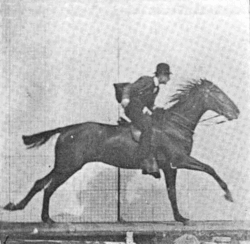The new Foreign Affairs issue on automation, which I’ve excerpted several times (here and here and here), would not have been complete without a piece by Andrew McAfee and Erik Brynjolfsson, authors of The Second Machine Age, an excellent book that asks all right questions about the rapid growth of robotics, trying to answer them as well.
In “Will Humans Go the Way of Horses?” the duo wisely points out that regardless of machine progress, we aren’t likely going to become our equine brothers. There’s some chance superintelligence might obliterate humans one day in the very long run, but interpersonal skills, common sense, political will and revolution are some of the tools the authors believe may slow or even mitigate the lower-case calamities on the horizon, keeping us from the stable or glue factory, even if we’re no longer the heart of production. An excerpt:
It’s possible, however, to imagine a “robot dividend” that created more widespread ownership of robots and similar technologies, or at least a portion of the financial benefits they generated. The state of Alaska provides a possible template: courtesy of the Alaska Permanent Fund, which was established in 1976, the great majority of the state’s residents receive a nontrivial amount of capital income every year. A portion of the state’s oil revenues is deposited into the fund, and each October, a dividend from it is given to each eligible resident. In 2014, this dividend was $1,884.
Even if human labor becomes far less necessary overall, people, unlike horses, can choose to prevent themselves from becoming economically irrelevant.
It’s important to note that the amendment to the Alaska state constitution establishing the Permanent Fund passed democratically, by a margin of two to one. That Alaskans chose to give themselves a bonus highlights another critical difference between humans and horses: in many countries today, humans can vote. In other words, people can influence economic outcomes, such as wages and incomes, through the democratic process. This can happen directly, through votes on amendments and referendums, or indirectly, through legislation passed by elected representatives. It is voters, not markets, who are picking the minimum wage, determining the legality of sharing-economy companies such as Uber and Airbnb, and settling many other economic issues.
In the future, it’s not unreasonable to expect people to vote for policies that will help them avoid the economic fate of the horse.•
Tags: Andrew McAfee, Erik Brynjolfsson

